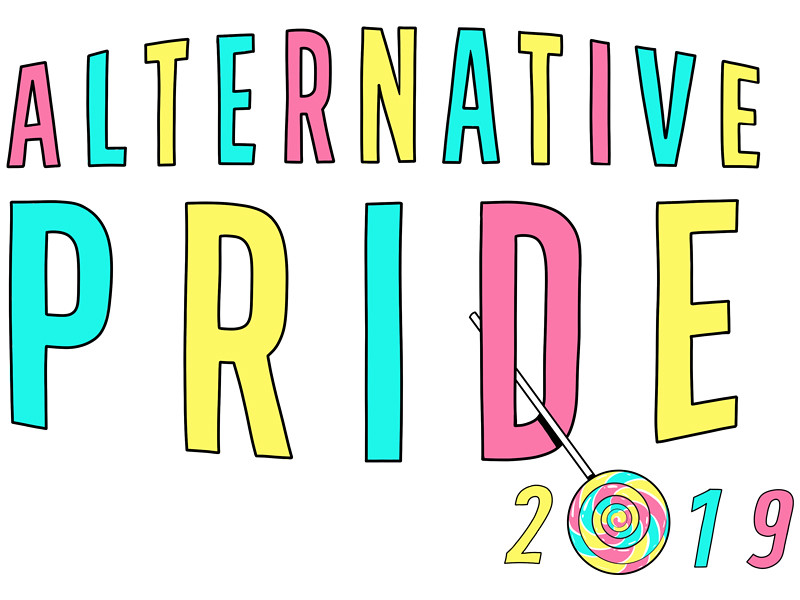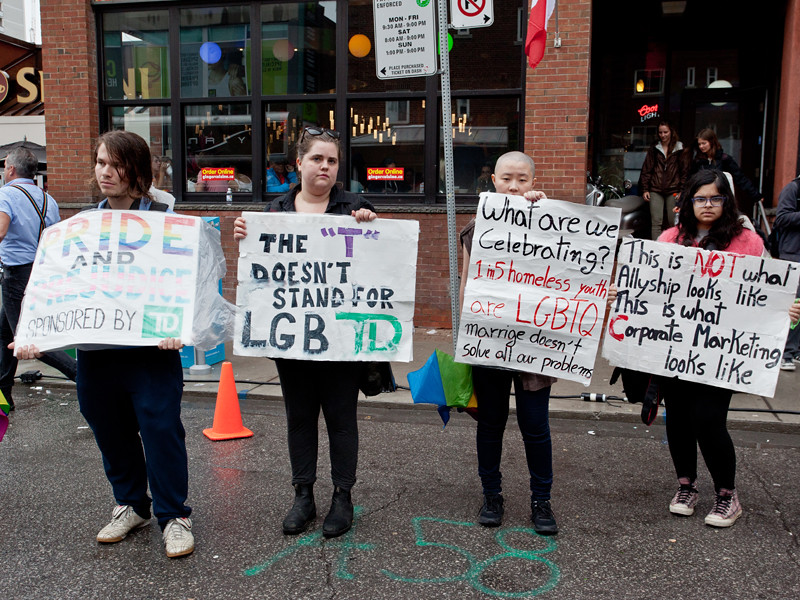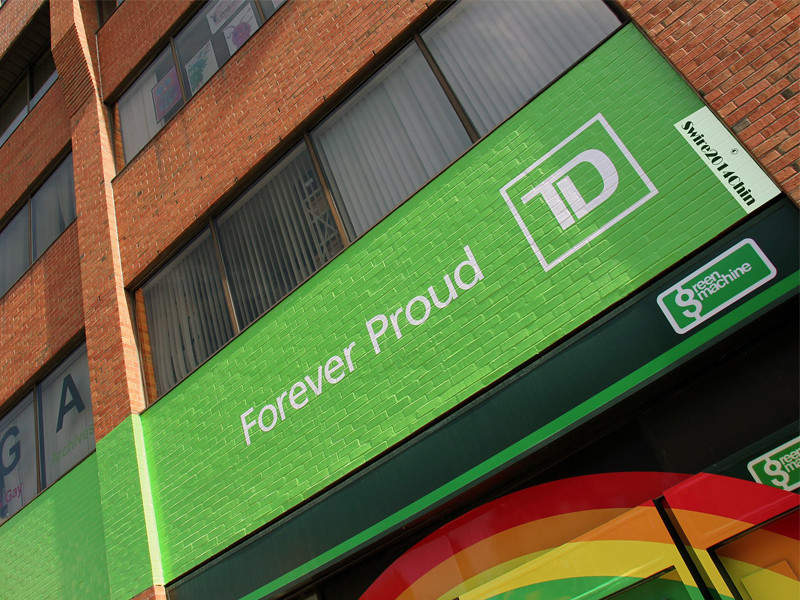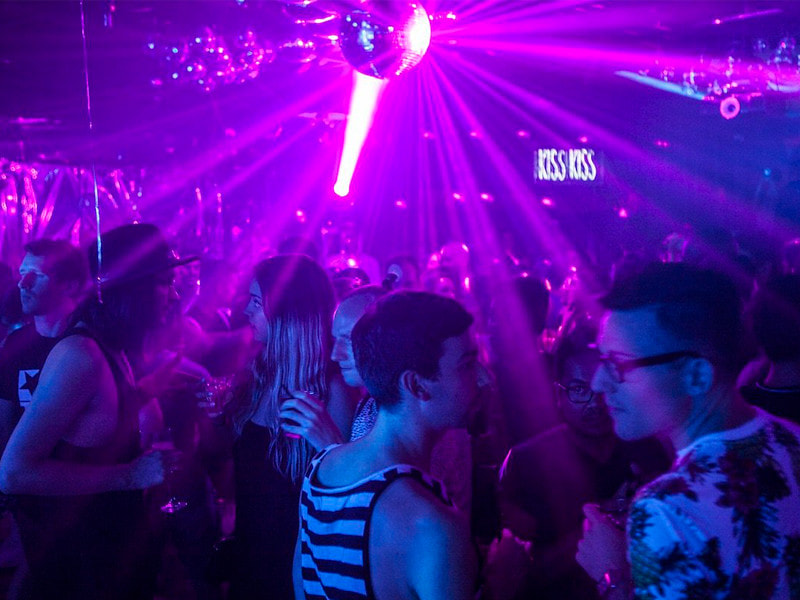|
By Tonte Spiff This year marks the 1st annual Alternative Pride Toronto Festival which is an independent, non-corporate, artist-led music and arts festival celebrating queer artists and spaces. It takes place over a span of 4 days (June 20 – June 24), presenting unique and diverse events including warehouse take-overs, outdoor urban activations, wild gallery parties, and grimey underground after-hours – all while raising money for some important Toronto queer charities. The need for an alternative to the mainstream Pride Toronto Festival has become rather apparent in recent years, as corporations have infiltrated Pride with sponsorships and advertisements, which in turn have limited the overall freedom of expression that was such a central tenant to Pride festivals of years past. Fatima Jaffer, a long-time community organizer and founder of Trikone Vancouver (an organization for South Asian LGBTQ+ people), explained: “Corporate sponsorship has a lot to do with how queers are educating the community about who we are.” Fatima further elaborated: “By privileging the banks, the police, the RCMP, Winners/Homesense and corporate entities like that, we’re sending a certain message of respectability, of fitting into the nations, of being a good citizen – instead of really celebrating our queerness.” Rinaldo Walcott, Director - Woman and Gender Studies Institute at University of Toronto and author of Queer Returns: Essay on Multiculturalism, Diaspora and Black Studies, said: “Commercialization produces a set of deeper problems and issues for how queer people of colour, Black queers, and Indigenous queers think about what it means to be a part of queer community.” Major issues are created by the commercialization of Pride through corporate sponsorships, as the idea of Pride in itself becomes so intertwined with consumption, which leaves little room for members of the queer community who live close to or below the poverty line. For instance, Pride Toronto was a year into a fierce debate in 2010 surrounding the participation and subsequent attempts made to censor Queers Against Israeli Apartheid (QuAiA) when TD entered the fray. Scott Mullin, then-TD vice-president, wrote a letter in March 2010 stating that while TD supports Pride Toronto, it became increasingly challenging for them to do so after Pride reversed its (short-lived and controversial) decision to screen all parade signs. A policy that was implemented in response to criticism over QuAIA’s 2009 contingent, and its signs challenging Israeli policies towards Palestinians. It was Mullin’s letter that sparked the queer community’s concerns and major discussions on the topic of corporate influence over Pride decision-making. Then, in February of 2011, Pride Toronto’s Community Advisory Panel released a 21-page document titled Our Pride: A Community Effort to outline issues, including corporate influence, and provided a number of recommendations such as decreasing Pride’s reliance on government and corporate sponsorships. A big part of the issue with corporate influence lies in the fact that Pride Toronto does not have a formalized process for vetting sponsors to ensure that freedom of expression won’t be limited by potential partnerships. To remedy this, Pride’s sponsorship contracts now include a clause requiring sponsors to, “operate in a manner consistent with the celebration of Pride and positive value of diversity in the LGBTTIQQ2SA communities.” Pride was meant to be a form of counter-culture and as yearly festivals continue to become more mainstream due to corporate influence and censorship, many individuals in the queer community have been left to search for an alternative. Hence the need for Alternative Pride, which will be very much a party-oriented festival and THANKFULLY does not accept any corporate funding. Alternative Pride will feature 40 artists – mostly house/techno DJs and drag artists – performing at six events including a villa party at a secret location, Los Angeles DJ Chris Bowen’s Bears in Space party at Stackt Market, a DIY dance garden-themed party and a Pride Sunday blow-out at the Baby G. Aeryn Pfaff - Artistic Director, Alternative Pride said: “Since we are not beholden to the government or corporations, we are able to provide an artistic platform without censorship.” She went on to add that Alternative Pride “aims to promote the notions of love, mutual consent, empathy and understanding.” Toronto’s Pride Week is an evolution of mass protests following the 1981 Toronto bathhouse raids, and it’s clear to see that things have drastically changed in the decades since. Many members of Toronto’s queer community see the current issues of corporate influence over the Pride Festival as a result of hypocrisy, leading to the creation of the Alternative Pride Festival in order to take back control.
|
Recent PostsCategories
All
Archives
December 2021
|
|
GET THE APP!
Listen to VIBE 105 anywhere you go!
|
OUR STATION
|
TUNE IN RADIO
|
STAY CONNECTED
|
Copyright © 2021 Canadian Centre for Civic Media and Arts Development Inc. Except where otherwise noted, presentation of content on this site is protected by copyright law and redistribution without consent or written permission of the sponsor is strictly prohibited.









